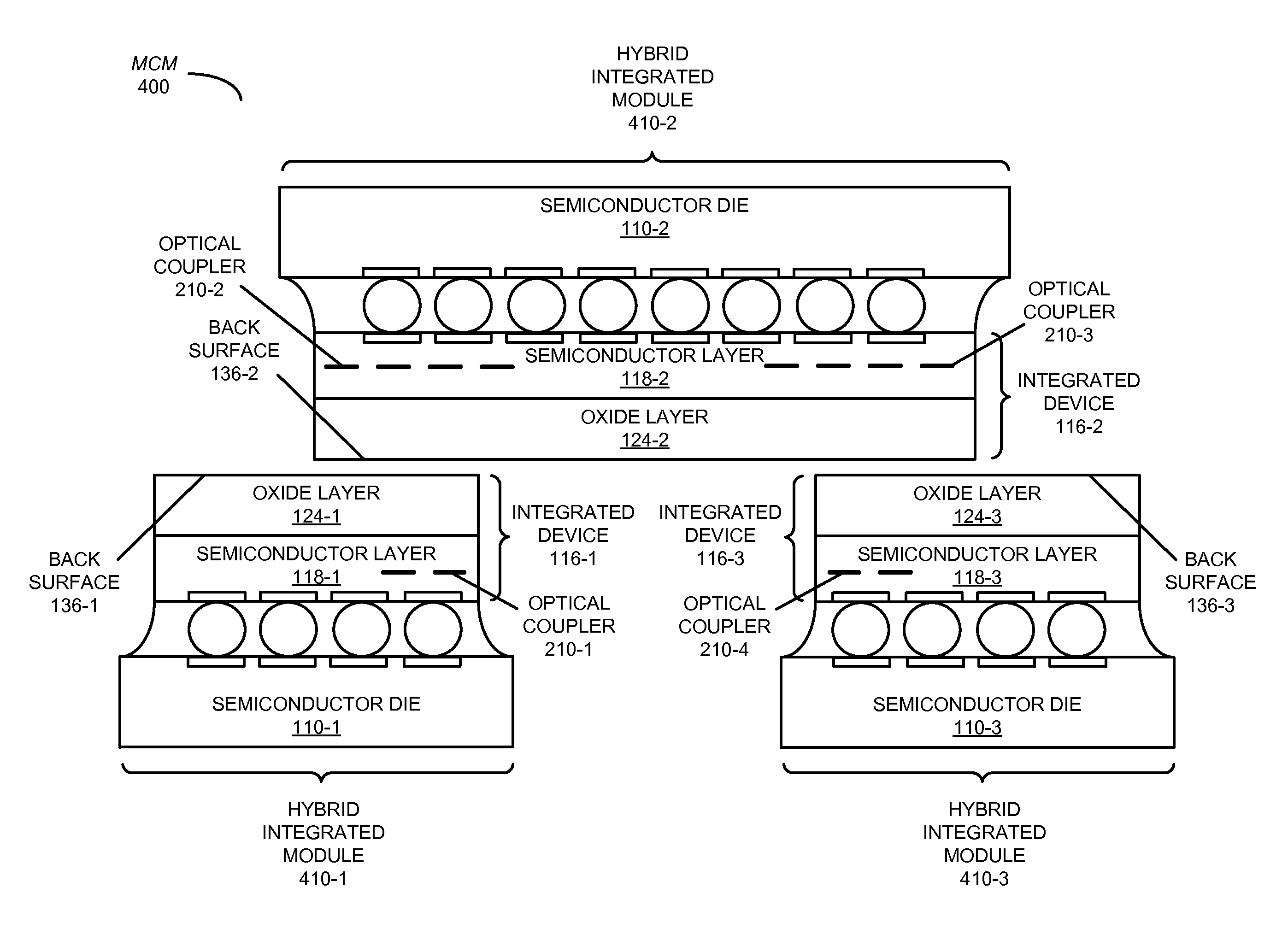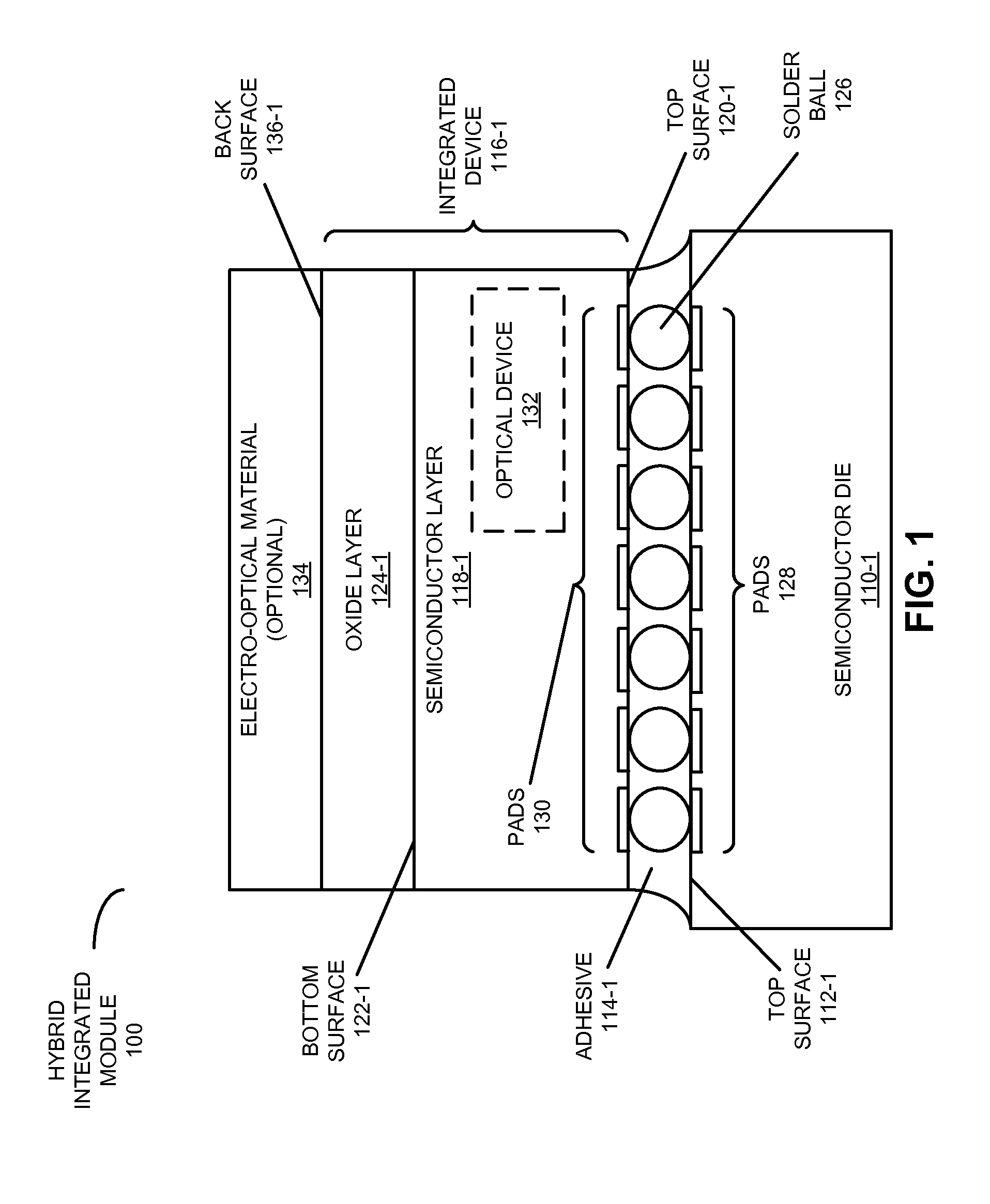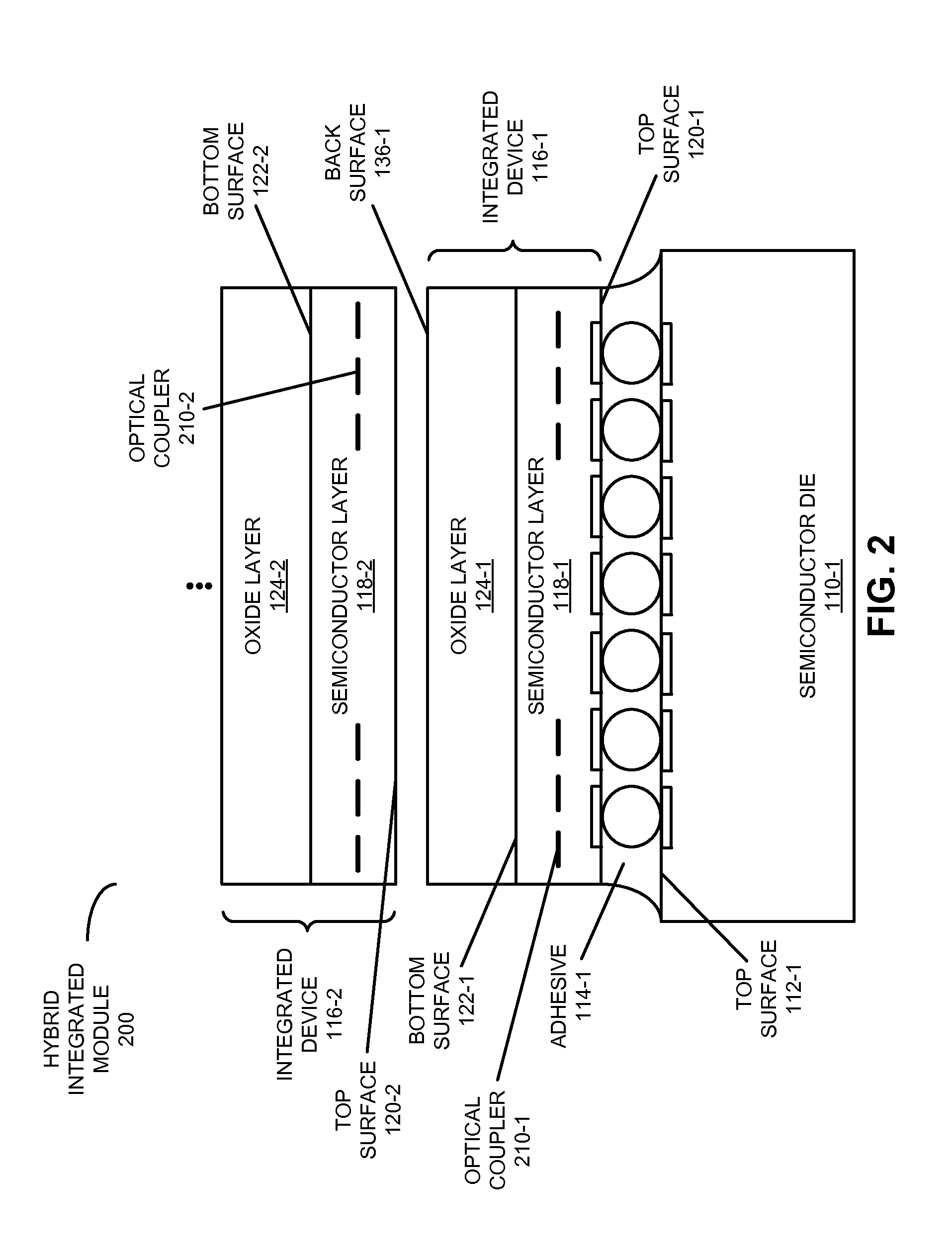Hybrid substrateless device with enhanced tuning efficiency
a substrateless optical device and enhanced technology, applied in the direction of optical waveguide light guide, semiconductor/solid-state device details, radiation controlled devices, etc., can solve the problems of increasing the risk of cds variation in optical ring circuits, and consuming significant power in thermal tuning, so as to improve the thermal tuning efficiency of the substrateless optical device, improve device performance, and improve the effect of device performan
- Summary
- Abstract
- Description
- Claims
- Application Information
AI Technical Summary
Benefits of technology
Problems solved by technology
Method used
Image
Examples
Embodiment Construction
[0024]FIG. 1 presents a block diagram of a hybrid integrated module 100. This hybrid integrated module includes: a semiconductor die 110-1 having a top surface 112-1; an adhesive 114-1 (such as epoxy) mechanically coupled to top surface 112-1 of semiconductor die 110-1; and an integrated device 116-1. Moreover, integrated device 116-1 includes: a semiconductor layer 118-1 having a top surface 120-1 and a bottom surface 122-1, where top surface 120-1 is mechanically coupled to adhesive 114-1, so that semiconductor layer 118-1 and semiconductor die 110-1 are mounted face-to-face; and an oxide layer 124-1 disposed on bottom surface 122-1.
[0025]In addition to the mechanical coupling provided by adhesive 114-1, hybrid integrated module 100 may include solder balls, such as solder ball 126 (e.g., bondline micro-bumps or micro-solder), electrically coupling pads 128 on top surface 112-1 and pads 130 on top surface 120-1, where adhesive 114-1 at least in part fills a space between top surfa...
PUM
 Login to View More
Login to View More Abstract
Description
Claims
Application Information
 Login to View More
Login to View More - R&D
- Intellectual Property
- Life Sciences
- Materials
- Tech Scout
- Unparalleled Data Quality
- Higher Quality Content
- 60% Fewer Hallucinations
Browse by: Latest US Patents, China's latest patents, Technical Efficacy Thesaurus, Application Domain, Technology Topic, Popular Technical Reports.
© 2025 PatSnap. All rights reserved.Legal|Privacy policy|Modern Slavery Act Transparency Statement|Sitemap|About US| Contact US: help@patsnap.com



